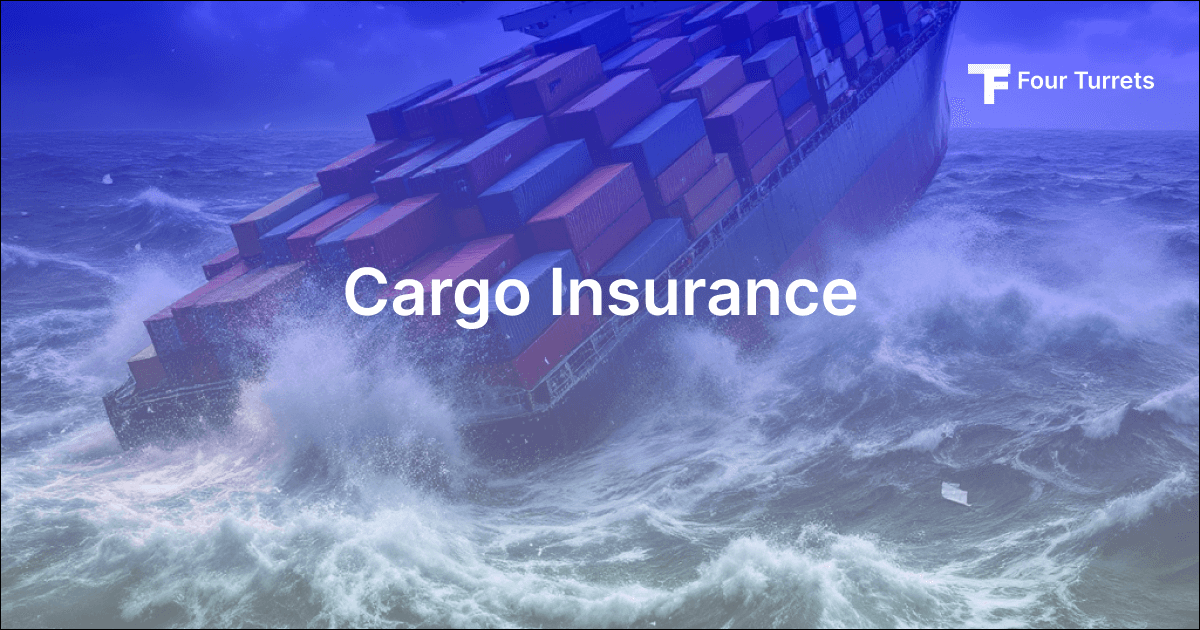Cargo Insurance: A Comprehensive Guide to Coverage, Benefits, and Costs for Your Shipments
Every shipment carries inherent risks, from accidents and theft to unforeseen weather events. This is where cargo insurance becomes an indispensable tool, offering a financial safety net against potential loss or damage. Understanding the nuances of insurance policies, especially marine cargo insurance if you’re shipping by sea, is crucial for protecting your investments and maintaining business continuity.
This guide will delve into what cargo insurance entails, its various types, benefits, costs, and the specifics of insurance coverage.
What is Cargo Insurance?
Cargo insurance, often referred to as marine insurance or transit insurance, is a specialized insurance policy designed to protect businesses and individuals against financial losses arising from loss or damage to goods during transportation. Whether your cargo shipment travels by sea, air, or land, cargo insurance provides a financial cushion if your goods are damaged, stolen, or lost while on the move. Think of it as a safety net for your valuable cargo as it navigates the complexities of global logistics.
This type of insurance coverage is vital because the liability of carriers (the shipping companies) is often limited and may not cover the full value of your goods. Carrier liability typically doesn’t cover issues like extreme weather, acts of God, or damage resulting from improper packaging by the shipper. Cargo insurance, on the other hand, can be tailored to cover the total value of your goods.
Why Do You Need Cargo Insurance? The Key Benefits
Investing in cargo insurance offers several significant advantages for businesses, particularly those engaged in international trade:
- Financial Security: The most direct benefit is safeguarding your investment. If your goods suffer loss or damage during transit, cargo insurance covers these costs, preventing a substantial financial blow.
- Peace of Mind: Knowing your shipment is financially protected allows you to focus on your core business operations without the constant worry of potential transit losses.
- Meeting Contractual Requirements: Many international trade agreements and client contracts stipulate that goods must be insured. Having cargo insurance ensures you meet these obligations, which is crucial for maintaining strong business relationships. For instance, under Incoterms like CIF (Cost, Insurance, and Freight), the seller is obligated to procure marine insurance.
- Preserving Your Reputation: When goods are lost or damaged, it can negatively impact your reputation with customers and suppliers. Cargo insurance ensures that your customers can be compensated for their losses, helping to protect your business’s standing.
- Regulatory Compliance: In some jurisdictions or for certain types of goods, cargo insurance may be a mandatory requirement.
- Comprehensive Coverage: Insurance policies can be tailored to cover a wide array of risks, including physical loss, theft, delays in delivery (in some cases), and additional expenses incurred due to mishaps.
- Protection for Various Cargo & Transport Modes: It covers diverse goods, including hazardous materials, perishable items, and high-value products, across different transport modes like ocean, air, and land.
Types of Cargo Insurance
Cargo insurance policies can be categorized in several ways, primarily based on the extent of insurance coverage and the mode of transport. Understanding these types of cargo insurance helps in selecting the right policy for your specific needs.
Based on Coverage Level:
- All-Risk Coverage (Institute Cargo Clause A): This is the broadest form of insurance coverage, protecting against almost all risks of physical loss or damage from any external cause, except for those specifically excluded in the policy,. To qualify for an all-risk policy, merchandise typically needs to be new and properly packed for export. Exclusions often include issues like inherent vice (problems with the goods themselves), improper packaging, cargo abandonment, and losses due to delays unless specifically endorsed,.
- Named Perils Coverage (Institute Cargo Clauses B & C): This type of policy is more limited and only covers losses from risks explicitly listed in the insurance policy.
- Institute Cargo Clause B: Offers more protection than Clause C. It covers everything in Clause C plus risks like earthquakes, volcanic eruptions, and water damage (seawater, rainwater, river water), as well as loss or damage to packages overboard or during loading/unloading. It can also be extended to cover theft, pilferage, and non-delivery.
- Institute Cargo Clause C: Provides basic insurance coverage against major casualties like fire, explosion, stranding, sinking, collision, and discharge of cargo at a port of distress. It is often used for bulk cargo, used merchandise, or waste materials.
Based on Mode of Transport:
- Marine Cargo Insurance: Specifically covers goods transported by sea. This is essential for businesses involved in international ocean freight.
- Air Cargo Insurance: Protects goods shipped by air, crucial for high-value or time-sensitive items.
- Land Cargo Insurance: Covers goods transported over land via truck or train, typically for domestic shipments or the inland leg of an international journey.
It’s important to note that many cargo insurance policies can offer door-to-door coverage, meaning they protect your shipment across multiple modes of transport used in a single journey.
What Does Cargo Insurance Cover (Inclusions)?
Typical insurance coverage under a cargo insurance policy often includes :
- Loss or damage from events like explosions, fires, stranding, or sinking of the vessel.
- Additional expenses resulting from incidents such as overturning or collision of land conveyances.
- Protection from natural disasters like earthquakes, floods, tsunamis, or volcanic eruptions.
- Coverage for packages lost during loading, unloading, and handling processes.
- Safeguarding against seawater entry into ships and vessels, causing damage to cargo.
Always review your specific insurance policy document, as coverage details can vary between insurers.
What Does Cargo Insurance Not Cover (Exclusions)?
Even with comprehensive policies, certain exclusions are common in cargo insurance:
- Inherent Vice: This refers to loss or damage resulting from the nature of the goods themselves, such as improper packing by the shipper, natural spoilage of perishable goods, or degradation due to the cargo’s own constituents reacting to shipment conditions.
- Intentional Misconduct: Purposeful actions by the policyholder or their employees that cause loss or damage to the cargo are not covered.
- War, Terrorism, and Civil Unrest: These risks are typically excluded but can often be added with a special endorsement and an additional premium.
- Nuclear Risks: Loss or damage from nuclear radiation is generally not covered.
- Certain Cargo Types: Some policies may exclude or limit coverage for very valuable items like precious metals, currency, or artwork unless specifically declared and agreed upon.
- Losses Due to Delay: Unless specifically included (deadline coverage), losses arising purely from delay are often excluded.
- Improper Packaging: If the damage to cargo is due to insufficient or unsuitable packaging for the journey, the claim might be denied.
It is crucial to carefully examine your insurance policy to understand all applicable exclusions.
Understanding Cargo Insurance Costs
The cost of cargo insurance is generally a percentage of the value of the goods being shipped. A common calculation method, particularly in India, is the CIF+10% method. This means the insured value is the Commercial Invoice Value (C) + Insurance Premium (I) + Freight and Related Charges (F), plus an additional 10% to cover unforeseen expenses or a small profit margin. However, this CIF+10% method is sometimes considered outdated, and other valuation bases might be used the cost might be around 0.15% of the total value of the goods, but this can vary significantly based on factors such as:
- The type and value of the cargo.
- The origin and destination of the shipment.
- The mode of transport.
- The level of insurance coverage chosen (e.g., All-Risk vs. Named Perils).
- The insurer’s specific rates and terms.
While an additional cost, the premium for cargo insurance is often reasonable compared to the potential financial devastation from a major loss or damage incident.
Choosing the Right Cargo Insurance Policy
Selecting the appropriate cargo insurance involves:
- Assessing Your Risks: Understand the specific risks associated with your type of goods, shipping routes, and modes of transport.
- Determining Value: Accurately declare the full value of your shipment to ensure adequate insurance coverage.
- Understanding Policy Terms: Carefully read the insurance policy, paying close attention to inclusions, exclusions, deductibles, and the claims process.
- Comparing Quotes: Obtain quotes from reputable insurers or through your freight forwarder to find a policy that offers the best balance of insurance coverage and cost.
- Considering Incoterms: Ensure your insurance coverage aligns with your responsibilities under the agreed sales terms.
Secure Your Shipments, Secure Your Business
In the unpredictable world of global trade, cargo insurance is not just an expense; it’s a strategic investment in your business’s financial health and resilience. By understanding the different types of cargo insurance, the benefits of cargo insurance, and what insurance policies cover, you can make informed decisions to protect your valuable cargo in transit from loss or damage.
Don’t let unforeseen events derail your operations or erode your profits. Secure your shipments with the right cargo insurance coverage.
For expert advice and growing your business by collaborating with the right exporting partner, you can contact our team at Four Turrets.
Frequently Asked Questions
Do you need to invest in cargo insurance?
Yes, investing in cargo insurance is highly recommended, especially for businesses involved in international trade. While it's often elective (optional), not having it exposes your business to significant financial risks. Carrier liability is limited and doesn't cover many common perils or the full value of your goods in transit. Cargo insurance provides comprehensive protection and peace of mind.
Who gets the benefit of cargo insurance in case the cargo gets lost?
The beneficiary of the cargo insurance payout in case of loss or damage is typically the party that has an "insurable interest" in the goods at the time of loss. This is often the owner of the goods. Depending on the sales contract (Incoterms) between the buyer and seller, this could be the exporter or the importer. The insurance policy will name the insured party who is entitled to claim compensation.
Who buys cargo insurance in international trade?
The responsibility for buying cargo insurance in international trade is usually determined by the agreed-upon Incoterms in the sales contract. Under terms like CIF (Cost, Insurance, and Freight), the seller is responsible for purchasing marine insurance covering the shipment up to a named port of destination. Under terms like FOB (Free on Board) or EXW (Ex Works), the buyer is typically responsible for arranging and paying for cargo insurance from the point the risk transfers to them. However, even if not contractually obligated, either the exporter or importer may choose to take out their own insurance policy to protect their interests. It can be taken by the exporter, the importer, or even a forwarding agent involved in the transit of goods.
What is "General Average" in marine insurance?
"General Average" is a principle unique to marine insurance. It refers to a situation where a voluntary sacrifice (e.g., jettisoning some cargo) or an extraordinary expenditure is made to save the entire maritime venture (ship and remaining cargo) from a common peril, like a storm or fire. In such cases, all parties whose property was saved (ship owner and cargo owners) contribute proportionally to make good the losses intentionally incurred for the benefit of all. Having cargo insurance typically covers your contribution in a General Average event. Statistics show an importer might be involved in a General Average case every 8 years, making it a relevant risk.







